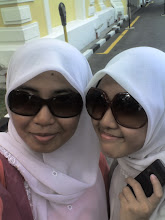the meaning of product may be varied
from wikipedia :
Product (biology) -
The elements of compounds produced by a chemical reaction are known as Products.
In cellular biology, a cellular product is something "manufactured" by an organelle such as the Golgi apparatus.
Product (business) -
In marketing, a product is anything that can be offered to a market that might satisfy a want or need.[1] In retailing, products are called merchandise. In manufacturing, products are purchased as raw materials and sold as finished goods. Commodities are usually raw materials such as metals and agricultural products, but a commodity can also be anything widely available in the open market.
The verb produce (prə doos' or -dyoos') is from the Latin p
rōdūce(re), (to) lead or bring forth. The noun product (prod'əkt or-ukt) is "a thing produced by labor or effort".[2] Since 1575, the word "product" has referred to anything produced.[3] Since 1695, the word has referred to "thing or things produced". The economic or commercial meaning of product was first used by political economist Adam Smi
In general usage, product may refer to a single item or unit, a group of equivalent products, a grouping of goods or services, or an industrial classification for the goods or services.
but the meaning of product in Little Oxford English Dictionary is :
- an article or substance manufactured for sale
- a result of an action or process
- a substance produced during a natural, chemical, or manufacturing process
- a quantity obtained by multiplying one number by another (Math)
product was produced from the elements of :
form were attributed by:
- portion
- glow/shine
- size
- light
- colour
- texture
- accommodating tight welcoming
the information above were found from wikipedia and little oxford en glish dictionary





0 comments:
Post a Comment